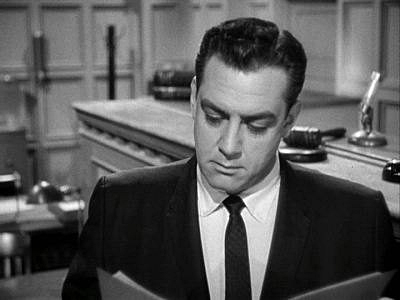
Sep 8, 2018 | Michigan Supreme Court
The Michigan Supreme Court issued an order that delays the implementation of a rule amendment that would have impacted law firm advertising.
On Aug. 30, 2018 the court stated that it would defer the amendment of MRPC Rule 7.2 that was scheduled to take effect Sept. 1 until further order of the court.
The court issued a May 30, order that was set to amend language in Section D of MRPC Rule 7.2 to state: “Services of a lawyer or law firm that are advertised under the heading of a phone number, web address, or trade name shall identify the name, office address, and business telephone number of at least one lawyer responsible for the content of the advertisement.”

Jul 31, 2018 | Michigan Supreme Court, Your Rights
July 27, 2018 – The Michigan Supreme Court has ruled that the Ann Arbor and Clio school districts have a right to ban guns from their schools
In a very much watched case that deals a blow to gun rights advocates who argued state law prohibits schools from enacting those policies.
Both districts had adopted the policies that barred the possession of guns on school property or at a school-sponsored event.
They each were sued by different groups. One was Michigan Gun Owners with parent Ulysses Wong, sued the Ann Arbor Public Schools. Michigan Open Carry with parent Kenneth Herman filed suit against the Clio Area Schools.
On Friday July 27, 2018, The 4-3 ruling upheld a 2016 ruling by the Michigan Court of Appeals which came to the same conclusion.
Jim Makowski, the attorney for Michigan Gun Owners and Wong, said the decision saddens him because he believes it will do nothing to improve school safety.
“Now criminals can be confident that most school districts are not going to allow firearms on property,” Makowski said. “Now we’ve just created a whole bunch of soft targets that are not going to be protected by an individual with a firearm.”
“Safety is our first and our primary duty, even before our critical mission of teaching and learning,” said Ann Arbor Public Schools Superintendent Jeanice Swift:.
That’s why the district, and its board, pushed the policy.
See the Supreme Court Document

Nov 2, 2017 | Michigan Supreme Court
The Michigan Supreme Court has reversed a state appeals court decision, issuing a ruling Wednesday that a single photo identification of a man suspected of robbing and shooting another man at gunpoint in Detroit wasn’t sufficient.
It’s a case that was argued last week before hundreds of students at Cass Tech High School in Detroit, as part of court’s Community Connections program that takes its proceedings on the road to high schools and colleges across the state.
It was the first time the high court held its proceedings at a Detroit school.
The case involved Elisah Thomas, 20, who was charged in a 2014 robbery and shooting on the city’s west side. Thomas has denied being involved in the incident, and told the Free Press Wednesday that he’s happy to be able to put the whole matter behind him.
“It was a rough time of my life that I’m glad to have over,” said Thomas, who was 17 and a high school senior at Oak Park High School at the time of his arrest. “This system can break you.”
Maria Miller, spokeswoman for the Wayne County Prosecutor’s office, said Wednesday that “there has not been a decision,” on whether to file a notice to appeal to the U.S. Supreme Court.
The key issue in the case: Whether the identification of Thomas raises due process concerns. After the victim, Dwight Dukes, was robbed and shot, police officers canvassed the area looking for a suspect. They came across Thomas, who said he had left his home to get a meal from a nearby coney island restaurant.
The police officer took his picture with a cell phone. Within a hour of the shooting, the officer was showing the single cell phone photo to the victim as he was being wheeled down a hospital hallway, asking him “Was this the guy who shot you?”
Lawyers for Thomas argued that the process was unnecessarily suggestive. A Wayne County Circuit judge agreed in February 2015, throwing out the identification and dismissing the charges. But the Michigan Court of Appeals reversed the circuit judge in December 2016.
“Due process concerns arise when law enforcement officers use an identification procedure that is both suggestive and unnecessary,” the court said in a written ruling.
“The parties do not dispute the facts relating to the identification: the victim viewed the assailant’s partially obscured face for no more than seven seconds on a dark city street with no streetlights while a gun was pointed at him. The description the victim gave to police officers was generic and could have described many young men in the area; moreover the victim’s description of the assailant changed between his first interview and his follow-up interview at the hospital.
“Accordingly, the trial court determined that the single photograph identification was sufficiently unreliable and that it should be suppressed. We agree with the trial court’s assessment of reliability based on the relevant totality of the circumstances.”
Thomas faced multiple charges, including one count of assault with intent to murder and one count of armed robbery. But the high court ruling means the charges against Thomas have been dismissed.
Thomas said the quick ruling – after oral arguments were held a week ago – indicates the members of the court “saw all of the flaws” of the case.
“They never even gave me a gunshot residue test,” Thomas said, adding that if they had, he would have never been charged.
“They didn’t have anything. They didn’t have any evidence against me.”
Thomas, who was taking community college classes in Lansing after the charges against him were originally dismissed in 2015, has dreams of being an entrepreneur and plans to return to college to get a degree in business administration.
But he worries about people who aren’t as fortunate as he was. He said he worked multiple jobs to raise enough money to pay his attorneys.
“I really feel for anyone who falls into this kind of situation,” he said. “I had the money to pay an attorney … A lot of people don’t.”
Contact Lori Higgins: 313-222-6651, lhiggins@freepress.com or @LoriAHiggins

Jul 30, 2015 | Michigan Supreme Court
LANSING, MI 7/30/15 — In a decision that could have a far-reaching impact on current and future cases going through the court system, the Michigan Supreme Court ruled Wednesday that the state’s sentencing guidelines that mandate prison terms are unconstitutional, and that judges should use them only in an advisory capacity.
In a 5-2 decision, the court struck down parts of Michigan law around sentencing guidelines and made sentencing guidelines advisory rather than mandatory.
One of the biggest aspects of Wednesday’s ruling is the elimination of mandatory minimum sentencing as determined by sentencing guidelines. Instead of sentencing guidelines determining a minimum length of how long a defendant must stay in prison, it will be up to Michigan judges to decide the minimum amount of a prison sentence range.
“A scheme of mandatory minimum sentencing violates the Sixth Amendment if it constrains the discretion of the sentencing court by compelling an increase in the mandatory minimum sentence beyond that authorized by the jury’s verdict alone,” wrote Justice Bridget Mary McCormack in the majority’s opinion.
The ruling set off a range of reactions, with many prosecutors expressing outrage, while many judges hailed the decision as long overdue.
Oakland County Prosecutor Jessica Cooper predicted the ruling would throw the judicial system into chaos for a while.
“This is going to result in a great deal of disparity in sentencing,” Cooper said. “It’s going to make a mess on both sides of the aisle and that’s not fair to anyone.”
But Oakland County Judge Jim Alexander said that guidelines are supposed to be a road map and not a hard and fast mandate.
“We’re going to have to get used to it. We’re going to have more discretion,” he said. “You can’t get total consistency when you’re dealing with human beings.”
There are more people incarcerated than our neighboring states and it’s costing $2 billion a year.
“Michigan’s sentencing guidelines do so to the extent that the floor of the guidelines range compels a court to impose a mandatory minimum sentence beyond that authorized by the jury’s verdict.”
Sentencing guidelines are a series of variables — made up of the offense for which a defendant is found guilty and the defendant’s past — that help determine the range of time a defendant could serve in prison.
McCormack was joined by Chief Justice Robert P. Young Jr. and Justices Mary Beth Kelly, David Viviano and Richard Bernstein in the majority opinion. Justices Brian Zahra and Stephen J, Markman dissented.
Read the Michigan Supreme Court Opinion

Nov 20, 2014 | Michigan Medical Marijuana Act, Michigan Supreme Court
Michigan Supreme Court ruling on driving with presence of marijuana is a major MMMA break through.
By Michael Komorn
Rodney Lee Koon was charged in the 86th District Court with operating a motor vehicle with any amount of a schedule 1 controlled substance in his body. When he was stopped for speeding, he informed the officer that he was a medical marijuana patient and admitted that he had smoked marijuana five to six hours earlier.
(Related: Michigan Welfare Drug Testing Law Needs Medical Marihuana Exemption)
After a blood test revealed that Koon had THC in his bloodstream when operating the vehicle, the court concluded that his registration under the Michigan Medical Marihuana Act, MCL 333.26421 et seq., protected him from prosecution under MCL 257.625(8) unless the prosecution could prove that the defendant was actually impaired by the presence of marijuana in his body.
(Related: Your Duty as a Juror in a Medical Marihuana Case)
The ruling was affirmed by the Grand Traverse Circuit Court, concluding that the Michigan Medical Marihuana Act superseded the zero-tolerance provision of MCL 257.625(8). The prosecution appealed by leave granted, and the Court of Appeals reversed on grounds that the Michigan Medical Marihuana Act prohibits registered patients from operating a motor vehicle while under the influence of marijuana and reasoning that per MCL 257.625(8) a person is under the influence of marijuana if he or she has any amount of marijuana in his or her body.
(Related: Prosecutors, Law Enforcement Must Consider Medicine Before Marijuana in Arrests)
Koon sought leave to appeal. In an unanimous opinion per curiam, the Michigan Supreme Court, in lieu of granting leave to appeal and without oral argument held:
The MMMA does not define what it means to be “under the influence,” but the phrase clearly contemplates something more than having any amount of marijuana in one’s system and requires some effect on the person. Thus, the MMMA’s protections extend to a registered patient who internally possesses marijuana while operating a vehicle unless the patient is under the influence of marijuana.
If you or someone you know is facing charges as a result of Medical Marijuana prescribed to you as a Medical Marijuana patient under the Michigan Medical Marijuana Act, contact Komorn Law and ensure your rights are protected.
Michael Komorn is recognized as a leading expert on the Michigan Medical Marihuana Act. He is the President of theMichigan Medical Marijuana Association (MMMA), a nonprofit patient advocacy group with over 26,000 members, which advocates for medical marijuana patients, and caregiver rights. Michael is also the host of Planet Green Trees Radio, a marijuana reform based show, which is broadcast every Thursday night 8-10 pm EST. Follow Komorn onTwitter.
Read more: http://courts.mi.gov/Courts/MichiganSupremeCourt/Clerks/Recent%20Opinions/12-13-Term-Opinions/145259%20Opinion.pdf



